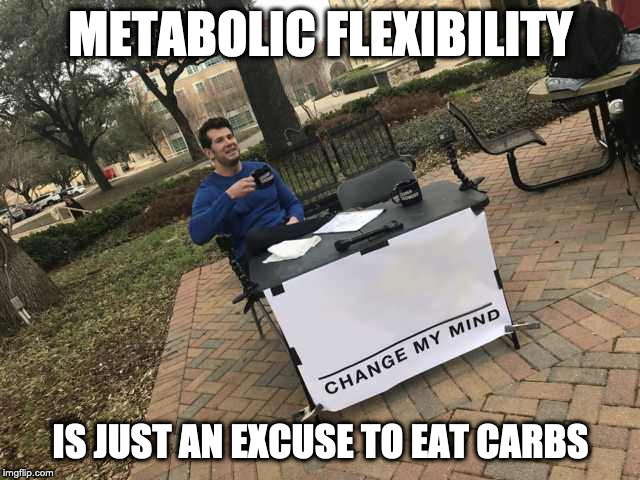Agreed, they work in balance. The current recommendations for these were derived on a grain-based diet. Eliminate plants and suddenly added dietary salt can put you out of balance compared to a diet that may actually require added salt. Meat has potassium, as long as you don’t, for example, boil it and toss the water. I don’t think we need to try to match potassium levels from a grain diet, or that the consequences would be the same.
Long Term Ketosis - Good, Bad, Ugly?
I agree 100% with this. Most folks who talk about so-called ‘metabolic flexibility’ mistakenly think it’s about what goes in your mouth. It’s not, it’s about mitochondria. We always have sufficient glucose for our needs produced by gluconeogenesis (barring disease) so there is zero need to eat it. Eating glucose, in fact, prevents metabolic flexibility by interfering with fat metabolism.


Thank you so much for these! The Inuit were really healthy people until sugar, flour and tea arrived.
@ctviggen PUFAs no less!
Thank you for this link as well! I’ve linked it above to my previous post.
I can not recommend this presentation more strongly to all!!!
I recall the unanswered question above pertained to just how long the “stopped” event lasted. Stopped for a holiday meal? A few days? Months?
I suspect the answer as to how long it takes to get back close to fat adaptation level reached prior to ingesting carbs is highly dependent on how long the non-keto eating lasted.
E.g., a single overstuffed holiday meal might make you feel like crap the next morning … but not likely to undo your general fat adaptation otherwise. Perhaps the best evidence for this is the “feeling like crap” reaction. 
@SomeGuy The time between my previous ketosis - likely several months after birth since my mother breast fed me - to my next ketotic episode was 70 odd years. I experienced zero discomfort or ill effects from re-entry. Just luck, I suppose. 
Yes, and I don’t want to labour the point. As mentioned, to the best of my knowledge, some form of transient ketosis, e.g. using a targeted ketogenic diet approach, does not appear to be well-studied at all.
Anecdotally, listening to people like Peter Brukner, Paul Saladino, Jacob Wilson, etc, there appears to be some value, at least among the athletic community, in keeping ketones in the lower range through targeted carb intakes. It would be interesting to see how longer term adherents to this approach responded to a Kraft test.
Yes, I have also played around with CKD and TKD approaches in the past. I don’t think there’s anything wrong with it, necessarily, and it could be helpful in some contexts.
Where could I learn about CKD, TKD and in general, cycling keto? Thank you.
Try searching on Luis Villasenor of Ketogains for targeted ketogenic diet (TKD). Jacob Wilson and Ryan Lowery have also written about this and the cyclical ketogenic diet (CKD). The Anabolic Diet by Mauro diPascale is probably the most famous version of CKD. From personal experience, I would recommend a TKD only.


